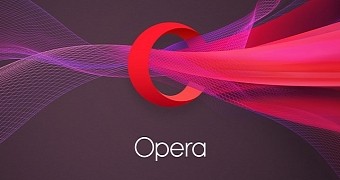Opera Software shareholders approved yesterday the sale of all shares to a consortium of Chinese companies that offered to buy the browser maker for $1.2 billion.
The Chinese consortium submitted an official offer last February, but before documents could be signed and the operation finalized, the company's shareholders had to approve the sale with a majority of 90 percent.
In a press release made available yesterday to Norwegian media, the company announced that 90.6 percent of the outstanding share capital and 90.9 percent of the shareholder votes agreed to the proposal received from the Chinese group.
“ The preliminary result, which is subject to confirmation and may be adjusted, is that the Offeror has received acceptances of the Offer for in total 132,911,316 shares in the Company representing approximately 90.6% of the outstanding share capital and 90.9% of the votes in the Company. The final result will be published as soon as it is available. ”
It took four years for Opera to find a new owner
Rumors of Opera's sale first started appearing in 2012, when most market analysts expected Facebook to make a move and enter the browser market to compete with the rest of the major US tech giants like Google, Microsoft, and Apple.
The rumors never materialized, but Opera's up-for-sale sign was never taken down, and the company kept leaving hints it was listening to offers. The Chinese buyers were the only ones who submitted an official offer.
Between the 2012 rumors of a Facebook sale and the Chinese buyout, Opera switched from its proprietary rendering engine to Google's Chromium core and even lost one of its founding members, who went on to create his separate browser called Vivaldi.
Opera's future ownership doesn't instill trust
Opera's soon-to-be owner is an investment fund officially named "Golden Brick Silk Road (Shenzhen) Equity Investment Fund II LLP." The fund is backed by three major Chinese companies that include Qihoo 360, who also publishes its own browser named 360 Secure Browser, gaming firm Kunlun, and investment firm Yonglian.
During the past year, researchers from Citizen Lab have been investigating and revealing major security and privacy issues with most of the Chinese browsers, such as UC Browser, Baidu Browser, and QQ Browser.
Immediately after the news broke about Opera's intentions to sell to Chinese firms, a large number of users have criticized the move, fearing their beloved browser would face similar security and privacy intrusions as the aforementioned Chinese browsers.
Opera was quick to answer their criticism by promising to remain the same, but promises don't value much when the people who make them don't own the company anymore.

 14 DAY TRIAL //
14 DAY TRIAL //